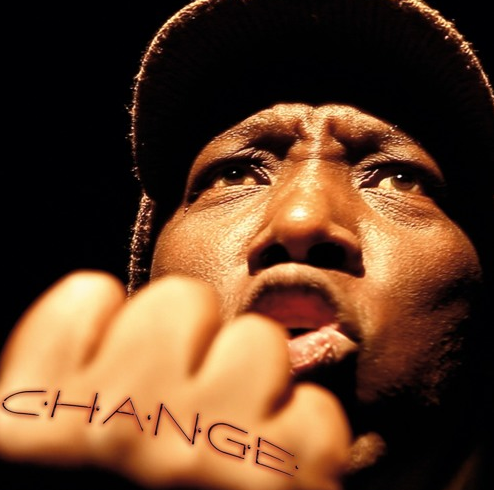The title Change might seem all too earnest, but the new album by N’Faly Kouyate (available for purchase on iTunes from NAMUN Records) is so refreshingly heartfelt that it should win over even the most jaded of listeners. Born to a Malinké griot family in Siguiri, Guinea, Kouyate now lives in Belgium, where he has been a prominent kora player since the ‘90s. Kouyate also plays in the Afro Celt Sound System, a group previously signed to Peter Gabriel’s Real World Records, which, as their name implies, combines Irish and West African traditions with electronic production. That band was formed in the ‘90s, a simpler time when “world music” was considered a real industry, and compilations like Planet Soup, featuring Tajikistani pop and African kora/German jazz fusion, were plentiful (yes, we still have many of these CDs in the Afropop office). The idea of world music itself is a dubious one, but Kouyate’s album is both passionate and joyous, thrillingly mixing traditional Malinké music and synthesizers, while delivering strong, direct messages in his lyrics.
Along with Kouyate’s powerful kora playing, the album also features instruments traditionally used by Malinké musicians, like the balafon and djembe. Kouyate sings warmly in English, French and Malinké, as well as the Guinean languages Soussou and Pular. The album starts strongly with pulsating synths on “Vente d’Armes.” Kouyate’s message is simple, yet vital: “Stop à la vente d’armes… Tu qui vends les armes, tu sais bien que c’est pour tuer les êtres humains.” (Stop selling guns… You who sell guns, you know well that it’s for killing human beings).
The album’s tone shifts from wobbly and dramatically orchestral on “Tunya” to positively jovial on “Djonsanlon.” Throughout, Kouyate comes across as a wise and compassionate character, imbued with the culture he learned from his father, the griot Konkoba Kabinet Kouyate, but also with an interest in creating soulful, and, at times, quite danceable music. “Paradise,” a song about finding heaven in the happiness of everyday life, is a whimsically upbeat pop song. The previously mentioned “Djonsanlon” combines acoustic and electric kora playing with a house music vibe. On the fiery, politically charged “Dominimba,” Kouyate attacks corrupt politicians over a trance-like gospel dance groove.
Closing the album is “All Unite For Africa,” which somehow works as both a conscious political anthem and EDM-inspired dance-floor banger. The song features legendary South African group Ladysmith Black Mambazo, Queens Vocals (Johnny Clegg’s backing vocalists), and South African rapper Slikour. Inspired by his dismay at the outbreak of xenophobic violence in South Africa, Kouyate recorded the track to send a message for unity among all Africans. It is a fitting way to cap one of the most genuinely uplifting albums you are likely to hear this year.









